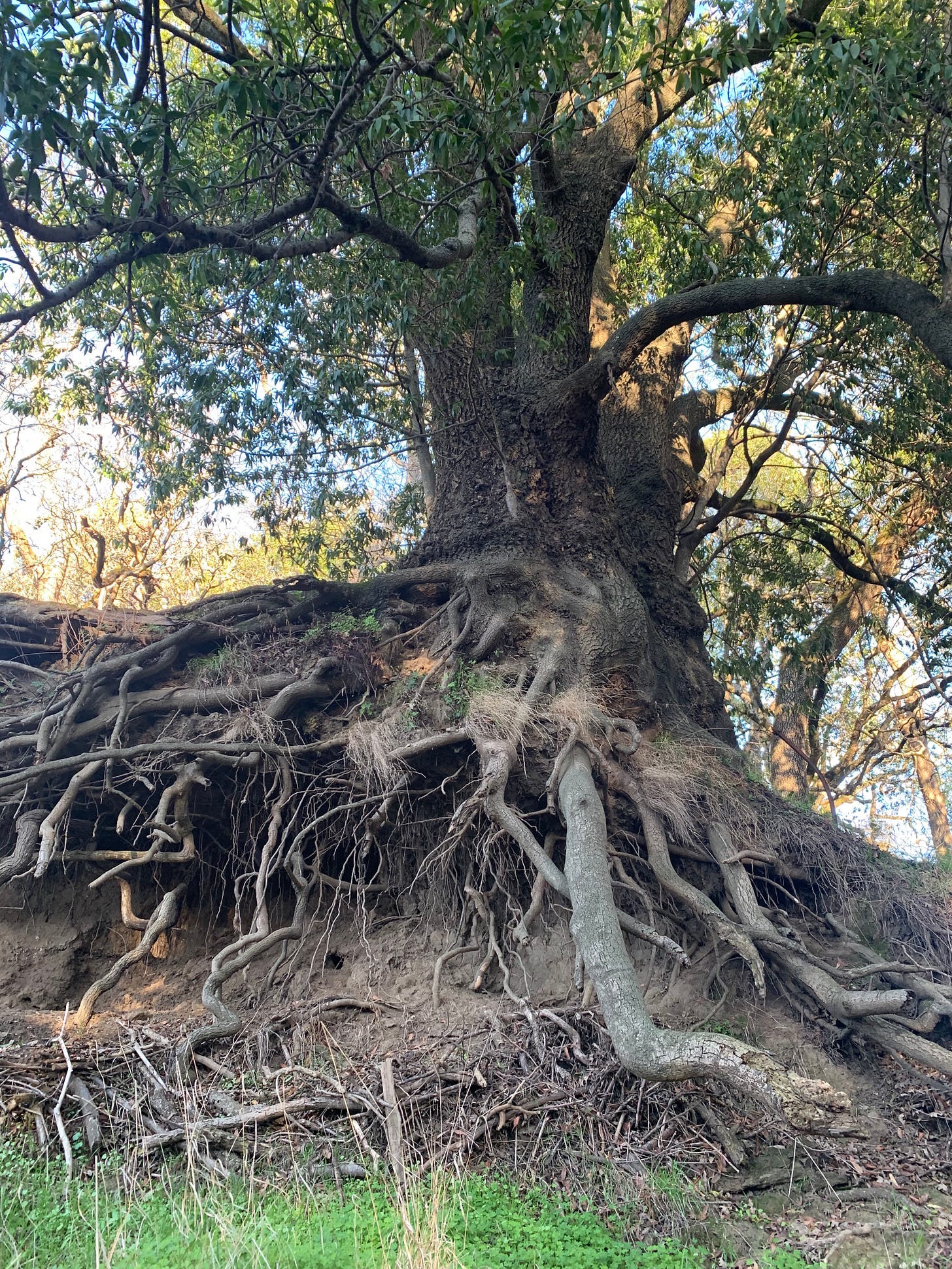Sometimes these newsletters come to me like a flash. I read or see something during the week, or connect two new dots in my own consciousness, and know: ah, that’s the dispatch for the week! But sometimes I get to Monday or Tuesday and I’m starring at the blank screen thinking I don’t have much to say, at least anything coherent and worthy of your precious time.
In these moments, I try to take a breath and just let something come through. Sometimes the thing that comes feels publicly meaningful. Often, though, I worry that what comes is too much a product of my inner life, and not necessarily of public value.
And so often, when I have this exact worry, it resonates in a way that surprises me. That’s what happened last week when I wrote about trying to unlearn taking responsibility for others’ feelings:
I’m realizing that I formed this delusion as a daughter, but I’ve supercharged it as a mother. Occupational hazard I guess. My role, my right role, is to witness, attune to, and love up on my daughters, to protect them from harm, to delight in getting to know them in all their weird glory. But I also aspire to accompany them through life’s inevitable suffering, not prevent it. In order to nourish them for real life, I can’t spend their childhoods body blocking any pain that I see coming their way.
I also want to model what it looks like for a grown ass woman to identify and articulate her needs clearly and consistently for them. How can that sentence sound so simple when I re-read it and yet so challenging when I try to live into it? The alternative isn’t pretty—martyrdom, resentment, an unlived life that they have to negotiate alongside their own. I don’t want that for them. And, more urgently, I don’t want that for me.
So many of you weighed in with your own stories of solidarity, learning and re-learning, and resources! If you haven’t read the comments section, I highly recommend you do. Meanwhile I compiled the resources mentioned, most of which I’d never heard of before:
Emily Nagoski, author of Burnout: The Secret to Unlocking the Stress Cycle, calls this “human giver syndrome.” Check out this episode of feminist survival podcast to learn more.
Amy Johnson, PhD, author of Just a Thought: A No-Willpower Approach to End Self-Doubt and Make Peace with your Mind, talks about finding “the space that lies beyond our self-created stories.”
Mara Glatzel, author of Needy: How to Advocate for Your Needs and Claim Your Sovereignty, talks about the necessity of rebuilding trust with ourselves first before we make this whole thing about other people. (FYI: I’ve got some copies of her book on hand and I’m hoping to do a Friday Q&A with her soon.) One reader recommended this podcast interview with Mara.
Another reader recommend two episodes of the podcast Being Well with Rick and Forrest Hanson: 1) Discovering Your Wants and Needs and 2) How to Effectively Communicate What You Want.
And yet another recommended an episode of The Emerald podcast called The Revolution Will Not be Psychologized, Part 2 with Báyò Akómoláfé (who I have found to be truly mind-bending and paradigm-shifting).
Thank you so much to this community for always being so generous and vulnerable and collective in your approach. It means the world to me, and so many others who look inward and outward, and learn together.
I notice that a lot of these experts are White and Western. Anyone have recommendations of BIPOC+ experts or folks from other parts of the world who have taught you something important about where your emotional responsibility begins and ends?






Can confirm your piece hit me right where I'm hurting and I felt possibility in hearing you say it out loud. Audre Lorde's "Sister Outsider" especially the piece "The Transformation of Silence into Language and Action". bellhooks's "All About Love: New Visions" and the rest of the trilogy "Communion: The Female Search for Love" and "Salvation: Black People and Love". Sonya Renee Taylor's "My Body is Not an Apology". Angela Garbe's "Essential Labor".
Courtney's invitation to suggest BIPOC+ experts prompts me to recommend the work of Prof. James Tully of the University of Victoria, B.C., Canada.
He has focused on the experience of Indigenous peoples of North America since he served as special advisor to Canada's Royal Commission on Aboriginal Peoples from 1991-95, and wrote a pathbreaking study entitled "Strange Multiplicity: Constitutionalism in an Age of Diversity" (1995).
I discovered his writings through his edition of Richard Gregg's classic, "The Power of Nonviolence." (2018). His commitment to the rights and well being of Original peoples is the most outstanding of any political philosopher. Please look at the books of this remarkable scholar! DD